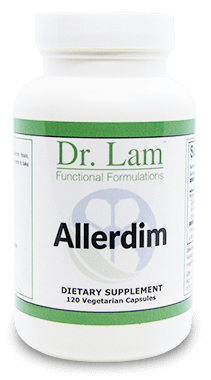 The beginning of spring is generally a season met with excitement, the end of cold weather, and the beginning of warmer temperatures. It also marks the start of plants opening and growing after the winter. Whilst it is a time that many enjoy, some dread this new season, as not only is it the beginning of warmer days and barbeques, but it is also the time of seasonal allergies.
The beginning of spring is generally a season met with excitement, the end of cold weather, and the beginning of warmer temperatures. It also marks the start of plants opening and growing after the winter. Whilst it is a time that many enjoy, some dread this new season, as not only is it the beginning of warmer days and barbeques, but it is also the time of seasonal allergies.
Seasonal allergies affect 10-30% of the global population and a quarter of the American population. These allergies can put a dampener on your enjoyment of the new warmer season and reduce your quality of life. This article will take a closer look at seasonal allergies, why they happen, and how you can get relief from them.
Seasonal allergies occur due to the change in seasons when different plants are growing. Whilst seasonal allergies are often associated with spring, you can have seasonal allergies due to any season. The most common time and types of seasonal allergies are:
When your body sees something that enters it as harmful, it responds to defend itself from it. Ideally, this response is used for harmful pathogens, but sometimes your body can become confused and attack non-harmful substances - allergens. During an allergy, when your body makes contact with the allergen, it will produce antibodies to protect you from the allergen. The antibodies then produce histamine and this release of histamine results in an array of symptoms that includes:
It can be tough to determine whether it's seasonal allergies or something more, such as Covid-19 or a cold. However, there are a few key differences.
One key difference between these is that seasonal allergies are seasonal and will reoccur during a certain part of each year and can last for a particular season.
Some of the symptoms of seasonal allergies are similar to Covid. However, some symptoms such as sneezing, and an itchy nose, throat, or ear are common with seasonal allergies and not Covid. On the other end of the spectrum muscle aches, a fever, nausea, vomiting, and diarrhea are symptoms of Covid and are not symptoms of seasonal allergies.
With a cold, the symptoms are more similar. However, a cold generally lasts five to seven days and can sometimes include a fever and general aches and pains, whereas a seasonal allergy often lasts longer and does not include fever.
Understanding what you are allergic to, is the first step in finding relief. There are two main tests that can be used to determine allergies. These tests include:
This form of testing has been used for more than a hundred years. It involves using a diluted form of the allergen. This is either pricked into the skin using a small plastic device (prick or patch test) or injected just under the skin (the intradermal test). The skin is then observed for 15-20 minutes to see if there is a reaction. If the results from the prick test are inconclusive, an intradermal test is usually performed. If the skin reacts, this is a positive result, meaning you are allergic to that allergen.
 The sensitivity and specificity of the prick test is up to 97% for some airborne allergens, while it can be 30-90% effective for food and other allergens. The patch test has a sensitivity and specificity of 70-80% (5). These tests are generally performed on the arm or back.
The sensitivity and specificity of the prick test is up to 97% for some airborne allergens, while it can be 30-90% effective for food and other allergens. The patch test has a sensitivity and specificity of 70-80% (5). These tests are generally performed on the arm or back.
However, while it can be useful in determining specific allergens there are drawbacks to this test that include:
This test, as indicated by its name, uses a sample of blood to determine allergens. With IgE testing, for common food allergens, the sensitivity is high, but the specificity is low, around 38-59%, so it can be difficult to determine exactly what you are allergic to. Sensitivity to other environmental allergens like pet dander or dust is around 65%, while specificity is 85-99% (5). The major benefit of this test is that multiple allergens can be tested for with one sample of blood. Some drawbacks to this test include:
There are many causes of seasonal allergies. Whilst there is a genetic component, other factors that can affect it include your environment and your gut health. If you start suddenly experiencing seasonal allergies, it could due to a change in personal hygiene, a change in environment, the introduction of new triggers to your body, or it could be a change in your gut health.
A large part of your immune system resides in your gut. Therefore, if your gut is unhealthy, it may take a toll on your immune system. The bacteria in your gut help to determine your gut health. Trillions of bacteria live in your gut and help to digest food, produce nutrients, protect against pathogens, and regulate your immune system.
Nutrition in the form of probiotics and prebiotics can help to build up your gut health. On the other hand, the use of medications like antibiotics and refined foods high in sugar or artificial sweetener kill beneficial bacteria and reduce your gut health.
This can cause inflammation, which loosens the tight junctions in the gut and can allow food particles into your bloodstream where they do not belong. This can be a cause of new allergies.
The conventional approach to allergies is the use of medications. The most common medications used to provide relief from allergies are:
These medications come with a range of potential side effects that include drowsiness, headaches, irritability, nausea, constipation, and some more serious side effects such as growth restriction, high blood pressure, and severe allergic reactions.
Personal hygiene includes well-known practices such as frequent hand washing and avoiding touching your face with your hands. However, it also includes doing nasal irrigation, using fragrance-free soaps and shampoos, and avoiding allergic triggers if you are aware of your triggers.
 If you have pets, it's important to practice pet hygiene. If you have dogs, brush them weekly and wash them monthly. This can be done more often if it is a rainy season. With cats, brush them weekly and clean the litter box daily. Every other week, completely clean the litter box by emptying it and soaking it with chlorine-free bleach for 30 minutes. After soaking the box, wash the box and redo the litter. If you have birds, clean out the cage every other day and pick up any loose feathers as much as possible.
If you have pets, it's important to practice pet hygiene. If you have dogs, brush them weekly and wash them monthly. This can be done more often if it is a rainy season. With cats, brush them weekly and clean the litter box daily. Every other week, completely clean the litter box by emptying it and soaking it with chlorine-free bleach for 30 minutes. After soaking the box, wash the box and redo the litter. If you have birds, clean out the cage every other day and pick up any loose feathers as much as possible.
In your home, practicing a regular cleaning schedule is important. This includes cleaning linen, pillows, carpets, windows, and windowsills. If possible, use natural cleaning products or make your own if you are feeling DIY.
A high-efficiency particulate air filter (HEPA) filter can remove at least 99.7% of dust, pollen, mold, and bacteria (1). This type of filter can be handy to place around your home, especially in your bedroom. If you live in a dry climate, a humidifier will help to keep your sinuses moist and reduce further irritation.
Whilst candles can enhance the ambiance at home and sometimes smell nice, the scents used can aggravate allergies. Rather opt for candles that use natural scents. Soy-based as well as beeswax candles can act as a natural filter and are less likely to trigger allergies compared to petroleum candles. These candles also have the added advantage of not being carcinogenic and do not increase the risk of developing cancer.
This fancy word refers to substances in foods that affect the immune system. Your immune system protects your body from pathogens and is triggered by seasonal allergies. Some conventional therapies help to regulate your immune system. However, various nutritional components do as well.
This vitamin plays an important role in maturing and multiplying immune cells such as lymphocytes, monocytes, and neutrophils. These cells help to regulate your immune system and help to produce antibodies, helping to protect your body from allergens. In one study of individuals with a vitamin A deficiency, the neutrophil count was within the optimal range. However, the activity of these cells was weaker, possibly leading to a lower immune system response (2).
Having sufficient vitamin A in your diet can help to enhance your immune system. Orange and yellow foods are rich in vitamin A such as:
Found in fish such as mackerel, salmon, and herring as well as sunlight, vitamin D, like vitamin A plays a role in regulating many different immune cells. Some of these cells include monocytes and the T-helper cells. Vitamin D helps with the proliferation of monocytes, a type of cell that ingests allergens and removes them from the body. With T-helper cells, there are two different kinds, with one kind being more involved in the production of antibodies. Vitamin D helps to increase the production of these cells, increasing the production of antibodies, and thus helping to protect the body from allergens (2).
 This mineral is involved in the growth of immune cells. A deficiency in this mineral will slow the growth of these cells reducing the functioning of your immune system (2). Food sources rich in zinc include:
This mineral is involved in the growth of immune cells. A deficiency in this mineral will slow the growth of these cells reducing the functioning of your immune system (2). Food sources rich in zinc include:
These fatty acids are found in fish such as sardines, salmon, and tuna as well as plant-based sources such as chia and flax seeds. Omega-3 helps to reduce inflammation as well as regulate the production of inflammatory markers in the body. This can help to reduce your allergic response (2).
Vitamin C helps to inhibit histamine reducing, the symptoms commonly caused by seasonal allergies. It also reduces the production of inflammatory markers, helping to reduce inflammation. (2).
Dietary sources of vitamin C include:
Not only are these vitamins and minerals crucial for the functioning of the immune system, but they also act as antioxidants. During allergic reactions as well as general regular cellular responses, unstable molecules called free radicals are produced. This can cause further damage to your body and increase inflammation in an allergic reaction, delaying recovery. Antioxidants can stabilize these unstable molecules, reducing inflammation and further damage to your body.
Probiotics can help to build up your gut health and improve your bacteria. They can be found in dietary sources as well as supplemental sources. Dietary sources of probiotics include:
Supplemental sources of probiotics either are one strain or multistrain, meaning they contain multiple strains of bacteria. Studies have found that two popular strains of probiotics, Saccharomyces boulardii and lactobacillus acidophilus can help to regulate the immune system. The study with saccharomyces boulardii found that it improved the number of antibodies- immune cells that help to protect your body as well as improved inflammation. Another study with lactobacillus acidophilus found it helped to balance immune cells as well as significantly reduced allergy symptoms.
There are a range of supplements currently on the market that claim to help improve symptoms of seasonal allergies. With a wide range of supplements as well as a wide range of ingredients used, it can be tricky to choose one that can help you. Supplements may not provide the overall benefits of food, but they can provide a high concentration of one or a combination of nutrients that can benefit your body. It can also be easier to get the optimal dose from a supplement rather than a food due to the large portion of food that is sometimes needed in order to get the optimal amount of a specific nutrient.
Before you start a new supplement, always remember to chat with your healthcare provider first especially if you have any medical conditions or are on medications. This will ensure that the new supplement does not interact with your medication or medical condition.
This supplement consists of a combination of quercetin, bromelain, and stinging nettle. Quercetin is an antioxidant and can help to reduce inflammation and inflammatory markers and can also help to reduce histamine in your blood (3). Bromelain is the enzyme found naturally in pineapples and works synergistically with quercetin to improve the absorption of quercetin in your body. It can also help to regulate immune cells responsible for increasing inflammation and allergies (4). Stinging nettle has been used traditionally to treat seasonal allergies specifically allergic rhinitis, and whilst research is promising, more research is necessary.
The combination in this supplement can help to improve various symptoms of seasonal allergies. It's available in capsules and the recommended dosage is one to three capsules 20 minutes before a meal, which can be repeated twice to thrice daily. Ask your experienced provider before starting as each person is different and supplements should be personalized in its use.
 Seasonal allergies can also be related to chronic stress. Your body reacts to stress through the adrenal glands and the NeuroEndoMetabolic (NEM) Stress Response System. When stress is short-term, your adrenal glands release cortisol. However, when stress becomes long-term this can cause your adrenal glands to become depleted. This depletion causes a low level of cortisol and can cause imbalances within the NEM system and a condition called Adrenal Fatigue Syndrome (AFS).
Seasonal allergies can also be related to chronic stress. Your body reacts to stress through the adrenal glands and the NeuroEndoMetabolic (NEM) Stress Response System. When stress is short-term, your adrenal glands release cortisol. However, when stress becomes long-term this can cause your adrenal glands to become depleted. This depletion causes a low level of cortisol and can cause imbalances within the NEM system and a condition called Adrenal Fatigue Syndrome (AFS).
This NEM system consists of six different circuits of related organ systems, and one of these circuits is the Inflammation circuit. This circuit helps to regulate inflammation within the body and consists of the immune system, gastrointestinal tract, and gut microbiome. An imbalance within this system can increase inflammation and the activation of mast cells that increase the release of histamine and trigger an allergic response. It also can cause your gut to become 'leaky' meaning that food can pass through your gut cells and enter your bloodstream, where your immune system may misidentify them as pathogens and attack, leading to new allergies. The increase in inflammation as well as the activation of mast cells can also worsen seasonal allergies.
Since an imbalance in this circuit reduces your gut health and increases your sensitivity, it can increase your risk of being sensitive to new products including supplements. This makes it important to check with your healthcare provider before trying a new supplement. This may help you avoid negative reactions that can set you back in your healing journey.
Many individuals experience seasonal allergies, and whilst they can sap the joy out of the new season, there are remedies available to help provide relief. This includes nutrients such as:
If you have currently been experiencing an increase in seasonal allergies and are looking for relief you can try Allerdim as a supplement, or call us at +1 (626) 571-1234 if you need help getting to the root cause and helping you on your healing journey.

Breathe Freely Through Every Season with Allerdim!
United States Environmental Protection Agency. "What is a HEPA Filter?" Updated Mar. 2023. https://www.epa.gov/indoor-air-quality-iaq/what-hepa-filter
Polak E, et al. "Protein Immunomodulatory Effects from Consumption of Nutrients in Whole Foods and Supplements on the Frequency and Course of Infection: Preliminary Results." Nutrients, vol. 13, no. 4, Apr. 2021, pp. 1157. https://www.ncbi.nlm.nih.gov/pmc/articles/PMC8065427/
Mlcek, J, et al. "Quercetin and it's Anti-Allergic Immune Response." Molecules, vol. 21, no. 5, 2016 May, pp. 623. https://www.ncbi.nlm.nih.gov/pmc/articles/PMC6273625/
Hikisz, P, Bernasinska-Slomczewska J. "Beneficial Properties of Bromelain." Nutrients, vol. 13, no. 12, 2021 Dec. pp. 4314 https://www.ncbi.nlm.nih.gov/pmc/articles/PMC8709142/
Muthupalaniappen, L., & Jamil, A. (2021). Prick, patch or blood test? A simple guide to allergy testing. Malaysian Family Physician : The Official Journal of the Academy of Family Physicians of Malaysia, 16(2), 19-26. https://doi.org/10.51866/rv1141
Whilst anyone can experience seasonal allergies, individuals who have been on a long course of antibiotics, individuals who work in an environment consistently exposed to allergens, or who are exposed to smoke or strong odors for a long period of time are at higher risk.